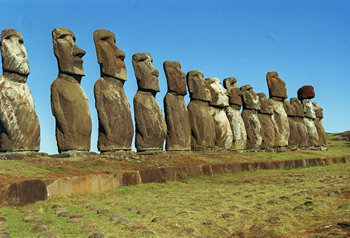Man is a social entity by itself, since he lives in an environment where he is not by himself, but where he relates with other people, each one of them with their own ideas, costumes and interests. Thus, the human being must organize the common life with others, in order to produce a mutually respectful environment.
Among the kinds of human sociability, two kinds can be distinguished:
– Communities, human groups that are joined by certain common features. An example of such is the ethnical group.
– Societies, groups of people gathered by a common cause or interest, which goal is to develop a certain task and reach an objective.
Besides, the living together between both are based on certain rules, since the relationships that are established, with friends or unknown people, are ruled by this.
The norms are rules to which an action or behavior must be adjusted, that commands, permits or forbids and that are oriented from a certain value. Also, defines the rights and duties of each person, and, besides, allow that each one knows how to behave and what he might expect starting an interaction. Four kinds of norms can be distinguished:
– Social Norms: rule the ways of relating and our costumes.
– Moral and Ethical Norms: are those that demand certain behaviors related with the values imposed by society.
– Religious Norms: rule the behavior according to a religion principle.
– Juridical Norms: guarantee the living together in society and have an obligatory characteristic; hence they can be forced to comply with. These are found in the Constitution, in the Civil Code and the Penal Code, among others.
In this context appears civic education, define as «the process through which are impulse the knowledge and comprehension of the group of norms regulating social life and the forming of values and attitudes that allow human beings to integrate to society and participate in its improvement»
The Person
Man, since its birth starts a physical growing process, affective and emotional. Thus, the person is a perfectible being; in other words, he can improve throughout time in all its dimensions.
As a social being, it is destined to live in groups; thus, requires other individuals and feels satisfaction to relate with them. Besides, it is within the society where the person finds his space to develop in a better way all his abilities.
The person does not exist without the society and there is no society without the man, since out of this is impossible to develop. Not in vain, the human being is born, grows and acts in a small social group which functions as its primary nucleus: the family.
Legal and natural Person
The Chilean Civil Code distinguishes two types of persons: natural and legal.
– Natural person: it is defined as «any individual of the human specie, whatever his age, gender, breed or human condition». Besides, the person is given a series of attributes that distinguishes her from other individual:
. Name: is the denomination by which one person is differentiated from other.
. Civil Status: is the permanent quality that an individual occupies in the family and society.
. Nationality: is the juridical link that joins a person with a determined State.
. Legal Capacity: is the legal condition that enables a person to enjoy or perform a right.
. Address (domicile): is the residence place and permanence of the individual.
. Patrimony: is the assembly of rights and obligations that are susceptible to be valued economically.
– Legal Person: also known as moral person, and defines her as «a group of natural personas associated in a corporation or institution». It is a fictitious person created by law that has almost the same attributions than the natural person, excepting the civil status and juridical capacity.
This person is enabled to demand rights and acquire civil obligations, such as acquire assets or sign contracts and it can be represented judicial and no judicially.
Two types of judicial persons can be distinguished:
– The Public Legal Person: is the one that represents the authority in its administrative functions. For example, the municipalities.
– The Private Legal Person: is the one depending in the particular initiative, being two types: those pursuing economical benefits, that are the civil societies and those that do not seek for profits, as corporations and foundations.








